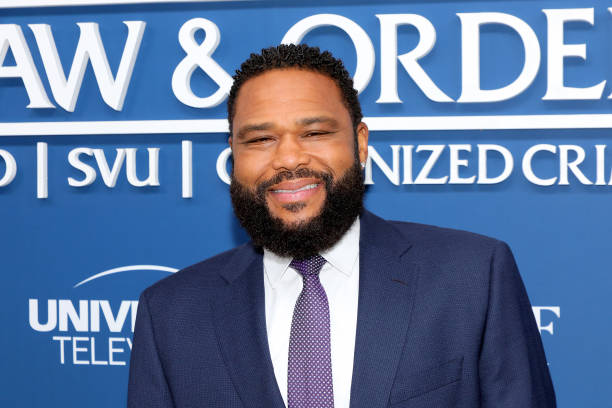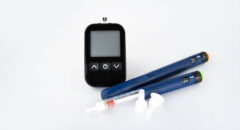
For decades, Emmy-nominated actor, comedian, and producer Anthony Anderson has been a household name, bringing laughter to millions through roles in Black-ish, Law & Order, and countless other projects. But while he’s been making audiences smile, he’s also been fighting a silent, personal battle: type 2 diabetes.
Diagnosed at just 29 years old, Anderson has spent the last 25 years learning how to manage the condition while navigating the demanding world of Hollywood. Now, at 54, he’s turning his journey into a mission to educate and inspire the Black community, where diabetes continues to take a disproportionate toll. For Anderson, this is about more than awareness—it’s about survival, accountability, and taking control of your health.
The Wake-Up Call
At first, Anderson dismissed the symptoms: extreme fatigue, insatiable thirst, and frequent trips to the bathroom. “I thought it was just the result of overworking,” he remembers. “I was promoting a film and had been in 14 states in 16 days.” But when his symptoms persisted, he went to the doctor. The result was clear—his glucose level was 235. “That’s when I knew it was real,” he says.
His diagnosis forced him to reflect on his family history. “I later realized my father had been living with undiagnosed type 2 diabetes for 25 years,” he shares. “By the time we figured it out, the disease had done its damage, and we lost him to complications.” That painful loss became a wake-up call, motivating Anderson to prioritize his health before it was too late.
“When you see someone you love go through that, it shakes you,” he adds. “I knew I had to make changes because I didn’t want to follow the same path. I want to be here for my kids, my mom, my family—but first, I have to take care of myself.”
“Getting Real” About Health
Anderson didn’t just make minor changes—he transformed his life. “I had to get real with myself,” he says. That meant scheduling regular doctor visits, tracking his glucose levels, and committing to both his physical and mental health.
“It’s not just about numbers—it’s about taking care of yourself holistically,” he adds. Anderson encourages others to take small, realistic steps toward better health. “You don’t have to change everything overnight. Start with small adjustments, and stay disciplined.”
For Anderson, exercise and nutrition became cornerstones of his new lifestyle. “I used to think I could outwork a bad diet, but that’s not how it works,” he admits. “I had to learn balance. I still enjoy the foods I love, but I’ve found healthier ways to prepare them.” He also emphasizes the importance of staying active, whether it’s a brisk walk, weight training, or even dancing. “Find something you enjoy doing, and stick with it.”
Anderson’s approach is refreshingly honest. “I’m not perfect,” he says. “Some days are harder than others. But I’m committed to the process, and that’s what matters.”
A Family Effort
Diabetes soon became a family issue for Anderson. A few years after his diagnosis, his mother was also diagnosed with type 2 diabetes. The two now hold each other accountable. “She stays on me about my medication, and I stay on her about hers,” he shares with a smile. “It’s a village. We’re taking care of one another.”
Anderson’s brother, a trauma nurse in Los Angeles, also plays a vital role in keeping the family’s health on track. Their collective effort is a powerful reminder that no one has to manage diabetes alone.
“It’s not just about me,” Anderson emphasizes. “When you take care of your health, you’re showing up for the people who care about you. My family keeps me motivated, and I do the same for them.”
The loss of his father remains a driving force behind Anderson’s mission. “I don’t want anyone else to go through what we did. We didn’t know better back then, but now we do. And when you know better, you do better.”
A Call to Action for the Black Community
Anderson is determined to use his voice to raise awareness, particularly in the Black community, where diabetes is far too common. African Americans are twice as likely to develop type 2 diabetes compared to white Americans, and they face higher risks of complications like heart disease and kidney failure.
“Black men, especially, don’t go to the doctor enough,” Anderson says. “We need to change that. You can’t address a problem if you don’t know it exists.”
By sharing his story, Anderson hopes to inspire others to take action—whether it’s scheduling that overdue doctor’s visit, making small changes to their diet, or leaning on loved ones for support. “We can’t keep sweeping this under the rug. It’s about holding ourselves accountable and being there for each other.”
Looking Ahead
As the New Year approaches, Anderson has one simple message: be realistic, be patient, and stay committed. “You didn’t get here overnight, so don’t expect to fix it overnight. Small steps can make a big difference.”
He encourages others to start with manageable goals, whether it’s swapping out sugary drinks, walking 20 minutes a day, or simply making that first doctor’s appointment. “You don’t have to do it all at once,” he says. “But you do have to start.”
Anthony Anderson’s story is one of hope, resilience, and empowerment. By getting real about his health, he’s showing others that it’s possible to thrive with diabetes—and inspiring a community to take charge of their future.
“It’s never too late to start,” he says. “Your health is worth it.”








